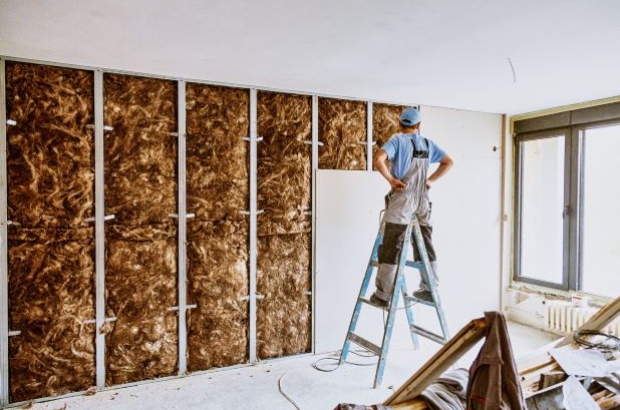- Daily & Weekly newsletters
- Buy & download The Bulletin
- Comment on our articles
Why real estate focus will play a major role in reducing Belgium’s carbon emissions and householders’ energy bills
There are times when the climate crisis can feel like some far-off asteroid that will, one day, come crashing down to Earth. Faced with the spectre of distant devastation, it’s hard to see climate change for what it is – not a crisis that is coming, but a crisis that we’re living through.
And yet with Belgians watching the price of heating their homes rise to its highest point in a generation, the urgency of finding new ways to manage our energy needs is starting to literally hit home. Philippe Wallez, head of environmental, social and corporate governance, public affairs and senior client advisor at ING Belgium, says that while the sheer scale of the task of tackling the climate crisis can be overwhelming, real estate offers an opportunity to put real money behind real change.
“When you look at the climate impact – and we know with no doubt that human activity is actually provoking climate change by the CO2 emissions – you start to ask yourself where should I start?” he says. “It’s huge, there’s so many things to be done, especially as a bank. So we decided to first concentrate on real estate. Because it’s responsible for about 36% of emissions, if you take residential and companies all together – it’s a big part of the CO2 emissions.”
To that end, he explains, ING Belgium has launched its Sustainable Buildings Guide to help homeowners and businesses identify ways to lower their properties’ carbon footprint. As energy costs continue to rise across Europe amid the broader cost-of-living crisis, more and more Belgians are seeing first-hand just how much energy it can take to heat houses built before modern heating and insulation systems. According to Statbel figures, just one in three buildings across Flanders was built after 1981, compared with fewer than one in four in Wallonia. In Brussels, that number falls to fewer than one in 10.
By choosing to buy, rent or build energy-efficient homes and offices, individuals can reduce both their climbing energy bills and the amount of carbon emissions produced by having to heat unnecessarily energy-intensive houses. Property developers are also going to have to adapt to the public’s fast-changing expectations, and what they’re prepared to accept for their future. In one real estate survey, ING found that half of respondents said they would not buy an energy-intensive home.
The Sustainable Buildings Guide, available now online and soon in app form, is designed to help prospective buyers, renters or renovators figure out the best way to maximise the energy performance of their homes or offices. Based on the property’s location and street address, the guide uses an algorithm to identify which measures could make the most impact on a building’s energy performance. It then provides an estimate of the cost and likely return on this investment, the energy savings that would be unlocked and the ultimate reduction in CO2 emissions.

Strong recommendations from the European Central Bank that banks give favourable conditions to people or companies looking to improve their energy performance, Wallez says, mean that customers looking for a loan or mortgage could expect to receive a discount on lending connected to renovations dedicated to reducing their carbon footprint.
“We want to finance the change, we want to fund the change, and there is a price incentive in our policies to favour the renovation or the acquisition of a good-performance building,” he says. “So the guide is an advisory tool, but next to that you have favourable conditions on your credits, on your lending, if you want to renovate and if you want to improve your performance. That’s a second element where the banks have to play a role.”
Faced with growing government regulation across Belgium requiring landlords to ensure their properties meet minimum energy performance standards before they can be rented out, more and more people are having to be conscious of just how an energy-intensive property could cut into their projected revenues. By not just offering investors access to clear information on how they can cut down their carbon footprint, but also offering real incentives for reducing their energy consumption for years to come, Wallez says, banks can play a crucial role in fuelling real, tangible results to reduce Belgium’s CO2 emissions.
“Climate risk in general will play an increasing role in the way that banks organise themselves in all their processes, including the credit processes – we will be forced to do it,” he says. “So we have to take into account climate risk in the way we value buildings and collateral, and the way we will pursue credit or not. That’s why we’re being proactive. To say don’t wait too long – we give you the possibility to act now.”
This article was first published in ING Belgium's Expat Time digital magazine, spring 2023


















